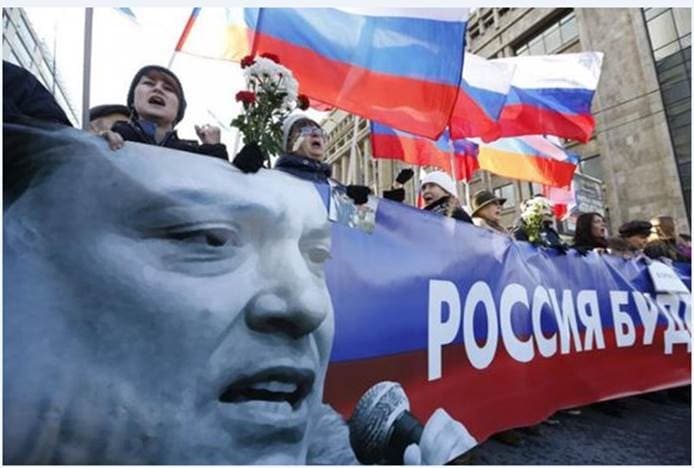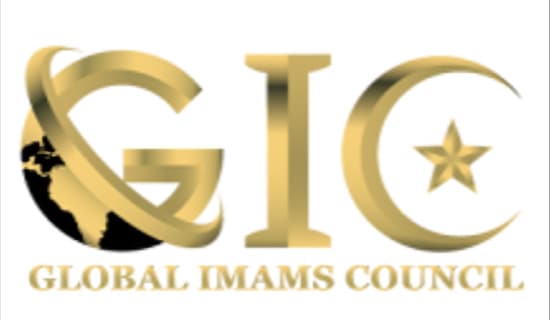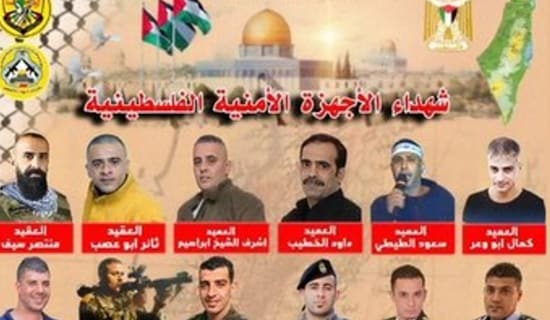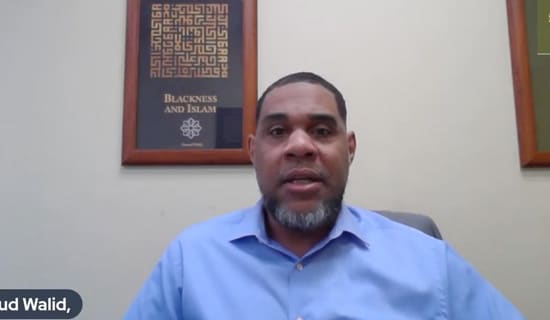In an article published in the Russian daily Vedomosti on February 16, 2016, Russian sociologist Denis Sokolov, a senior researcher at the Russian Presidential Academy of National Economy and Public Administration, analyses recent developments in Russia, focusing on the role of Chechen President Ramazan Kadyrov in shaping Russia's political scene. In his article, titled "Taking the Best Stand in the Potential War of All against All - Ramzan Kadyrov's Shaping of the Future," Sokolov assesses that Russia's repressive policies, coupled with the economic crisis, may lead the country to an internal war of 'all against all', similar to the Russian civil war of 1918-1922 or to the current war in Syria, and argues that Chechen leader Ramzan Kadyrov has placed himself in the best position to remain in power in such a scenario.
According to Sokolov, Kadyrov influences Russian political life on all levels and is dictating the country's agenda. In the foreign arena, Kadyrov (according to his own claims) sent special forces to fight the Islamic State (ISIS) in Syria even before Russian President Vladimir Putin sent the Russian bombers to this country. On the regional level, Sokolov says, he has set himself up as the undisputed leader of the North Caucasus by meddling in the political and religious affairs of neighboring republics and using political terrorism to silence rivals and oppositionists, and on the federal level, Kadyrov has been persecuting and silencing the liberal Russian opposition. The crippling economic crisis has not weakened him but rather strengthened the Chechen protection racket that is flourishing in Moscow as the demand for cash increases, Sokolov states. Sokolov describes the Chechen leader as "the face of the Russian political class whose institutional foundation is an alliance between the intelligence [agencies] and the criminal organizations."
Prominent Russian oppositionist Ilya Yashin, who was a close friend of the slain Russian oppositionist Boris Nemtsov (whose assassination has been linked to Kadyrov), recently published a 65-page report about Kadyrov and his armed forces titled "A Threat to [Russia's] National Security,"[1] in which he echoes Sokolov's views about the Chechen leader. In this nine-chapter report, published on the first anniversary of Nemtsov's assassination, Yashin asserts that under Kadyrov's rule Chechnya has become a state-within-a-state. The Chechen president, he says, can count on a private army of close to 30,000 men and has established himself as a leader with no rivals or opposition. According to Yashin, Kadyrov poses a threat to Russia's national security, since he regards Russia as potential loot for himself.
In response to Yashin's accusations, Kadyrov published the report on his social network accounts with the following comment: ÔÇ£Dear friends! We publish [this report] so that everyone can become familiar with it... I demonstrate my attitude towards this one-man show by sharing this masterpiece. We don't know how much blather is forthcoming, but what has already been written is nothing but blather.ÔÇØ[2]
In a February 27, 2016 interview on the Kremlin-affiliated television channel NTV, Kadyrov, whose term of office expires in April 2016, said he would not seek to continue as president. ÔÇ£My time is over. Every human being has a limit. I believe Kadyrov has passed his peak,ÔÇØ he said. He explained that he planned to devote himself to "family, personal life, [and] Islamic studies," and added: "If there is a need for me to take up a shovel, an assault rifle or a backpack - I can do that.ÔÇØ In another recent interview aired in the Russian Far East, he said: "There are lots of [potential] successors in our team. We have got very good specialists."[3]
The following are translated excerpts from Sokolov's article:[4]

Denis Sokolov
(image: Ranepa.academia.edu)
No Matter What Changes, Kadyrov Remains
"From the 2000s to the mid-2010s, Russia's domestic policy, or rather its ideology, focused on the struggle against the 'local' terrorists and on the debate about modernization [of the country]. At that time, there was a need for an enemy like Dokka Umarov,[5] an underground organization like the Caucasus Emirate and a fighter of terrorism like [the head of the Chechen Republic,] Ramzan Kadyrov. But there were also some new developments: the Skolkovo [Innovation Center],[6] the G8 summit and the Sochi Olympics. In 2014, after Vladimir Putin's return to the presidency [in 2012], which was accompanied by the protests of the 'creative class' [i.e. Putin opponents],[7] and after the [Sochi] Olympics were tarnished by the Ukrainian Maidan,[8] everything changed. Modernization was replaced by Crimea, and the Skolkovo [Innovation Center] was replaced by Strelkov[9] [as the focus of attention]; the Kiev Junta,[10] and later ISIS, replaced the [Caucasus] Emirate [as the main enemies of the state]. [Similarly,] Umarov was replaced by [ISIS leader] Al-Baghdadi, by [Ukranian President Petro] Poroshenko[11] and by [business oligarch and former governor of Dnepropetrovsk Ihor] Kolomoyskyi,[12] and the 'creative class' was turned into a fifth column and then deteriorated to [the status of] 'foreign agents' and 'traitors.' However, Kadyrov remained."
The Events In Syria Are 'A War Of Light Against Darkness' Waged By The Russian Army And Kadyrov
"Kadyrov did not just remain, he is the one who shapes [Russia's] political agenda. [Recently] he announced that the Chechen Special Forces are fighting on Syrian soil and have been fighting there since before ISIS even emerged there,[13] that is, before Putin sent the bombers to Syria. The fight against terrorism is apparently meant to make up for [Kadyrov's] other sins. But the leader of Chechnya, more than anyone else, knows that the boundary between terrorism and fighting against it is only theoretical. He felt free to organize a protest against the comic strips of [the French magazine] Charlie Hebdo[14] - almost demonstrating his solidarity with the murderers - and then immediately after the [November 13, 2015] terrorist attacks in Paris, he called on the whole world to join together in the fight against ISIS.[15]
"The fact that in 2015 many fighters from the North Caucasus in Syria joined ISIS, and the Caucasus Emirate's public pledge of allegiance to [ISIS leader] Al-Baghdadi, played into the hands of Moscow and Grozny by supporting the myth that the Russian security services, the [Russian] army and Kadyrov are waging a war of 'the forces light against the forces of darkness'..."

Ramzan
Kadyrov (image: rt.com, February 23, 2016)
The Opposition Is The Enemy Of The Public And Is Considered Mentally Ill
"It was after the murder of [Russian oppositionist] Boris Nemtsov[16] that... Kadyrov... began taking an active part in the upgrading of Russia's political machine.What is now beginning to be done to the extra-systemic opposition[17] on the federal level, [Kadyrov] has been applying for quite some time in his Republic, and he exported it beyond [the Republic's] borders. The killers of Nemtsov are called patriots,[18] and the opposition is the enemy of the public and is considered mentally ill. The methods of bullying people, suppressing any criticism and persecuting oppositionists' families are used. Kadyrov is one step ahead of the federal agenda...

Participants at a rally in memory of Russian opposition politician Boris Nemtsov, on the first anniversary of his murder in Moscow, Russia (Image: Sergei Karpukhin/Reuters, February 27, 2016)
"In the beginning of February 2016, a conflict with Ingushetia [a Russian Federation republic in the North Caucasus] developed. Kadyrov supported the mufti of Ingushetia, Issa Khamkhoyev, in his conflict with the president [of Ingushetia] Yunus-Bek Yevkurov. Kadyrov turned this political confrontation into a religious conflict, in which the president [of Ingushetia] was presented as a supporter of the Salafis, or, as they say, as an adherent of 'non-traditional Islam.'[19] This is a local agenda but a very important one... Kadyrov is actively using the conflict between the officially[-sanctioned] Islam and the Salafis as a tool for building his political machine across the entire North Caucasus..."
SUPPORT OUR WORK

Kadyrov's Exploitation Of The Economic Crisis
"A further escalation of the economic crisis will only contribute to the spread of existing criminal practices in the south of [Russia]. The drop in household incomes will lead to a rise in the informal sector of the economy [i.e., the "black economy"] which has already grown to 20% (according to official data), instead of 10%, which was the average across Russia before the start of the crisis... There are hardly any car services or restaurants left in Moscow that are operating without the protection of Chechen kryshas [literally "roofs," referring to Chechen protection gangs]... The struggle for cash will only escalate.
"Why is Kadyrov ahead of everyone?.. [Because] he does not [try to] predict anything and does not wait. Out of two versions of the future, Kadyrov always chooses the one in which he will remain and drags the whole system in this direction. Part of the Russian political elite voluntarily or involuntarily finds itself in the same version of reality as the Chechen leader."
Political Terrorism Has Become The Main Political Tool In The North Caucasus
"Thanks to his public activity, Kadyrov has become the face of the Russian political class whose institutional foundation is an alliance between the intelligence [agencies] and the criminal organizations that emerged in the 1990s in St. Petersburg...Under the guise of the war on terror, the law-enforcement system in the North Caucasus -and now across the country - is fighting political rivals and ideological dissidence...
"Since the second Chechen war,[20] intelligence agencies [such as the Federal Security Service (FSB), the former KGB] have gained the highest political status. As a result, political terrorism has become the main political tool used in Dagestan, Chechnya and other regions of the North Caucasus. Society, horrified by the [armed groups'] bombings of homes, schools, theaters and hospitals, obediently feared the armed underground and justified the unrestrained actions of law enforcement officials... Two or three suspected terrorists (sometimes people who were forced from their homes one day before they turned out to be terrorists) are surrounded by three rings of armored vehicles and hundreds of special unit officers who turn the house into a heap of bricks and concrete... Who knows where the network of [intelligence] agents ends and the terrorist one begins? Who really equips and sends the suicide bombers and why do they do it? At the same time, the so-called illegal armed groups have often served the interests of local political elites by organizing economic blackmail and eliminating political rivals...
"Kadyrov declares all these practices, as well as his participation in the war in southeast Ukraine, to be correct and patriotic. This is a consistent political agenda [which can be used] to consolidate a party. This political agenda is for those who, like Kadyrov, do not have any alternative..."
The Political Opposition Is Fleeing
"Since around 2003, social activists in the Caucasus risk being placed on the list of untrusted or even unwanted individuals. If they oppose corruption and [officials] abusing [their power] in disputes over land, or advocate the notion of practicing Islam according to one's own beliefs, they could be convicted under the same article of the Criminal Code as the fighters of Caucasus Emirate. This includes being apprehended and interrogated under torture and/or being kidnapped.
"The practice of planting drugs or ammunition on 'wrong Muslims' during searches, and then arresting them and giving them a choice between a lengthy prison sentence and paying for permission to leave the country, has created a stream of political refugees, as well as an armed resistance. Thousands of people have left Russia and other CIS [Russian Commonwealth of Independent States] countries for Turkey, Egypt, the United Arab Emirates, Ukraine and the European Union, fleeing from the authorities' religious persecution...
"In the 2000s there was a 'small hijra', when Muslims of the North Caucasus who formed a political opposition or took a stand against the local security forces were outlawed in the region. Some took to the woods and some moved to other cities and regions (for example, some Salafis left Dagestan, where they had been persecuted, in favor of Moscow, St. Petersburg, and the Tyumen region). In the 2010s there was a 'global hijra,'when the entire opposition (including Muslims, nationalists, and liberals) faced repression due to their ideological dissidence...
"The political terror against the activists of religious and national revival fueled the armed underground in the mid-2000s, as well as its global reincarnation- the flood of political migrants and mujahideen - in the mid-2010s. [Furthermore,] the collapse of the Russian oil economy may trigger an [internal] armed confrontation. Kadyrov, thanks to his animal instincts, has already taken the best possible position for a potential war of 'all against all,' which promises to be very similar to the events that are unfolding in Syria today or even to those that took place in Russia during the Civil War of 1918-1922. History, as always, will be written by the victors, but there is chance for a different future, provided someone can be found to make this alternative choice."
Endnotes:
[1] Openrussia.org, January 15, 2016.
[2] Rt.com, February 23, 2016.
[3] Rferl.org, February 27, 2016; Rt.com, February 28, 2016.
[4] Vedomosti.ru, February 16, 2016.
[5] A leading Chechen jihadist, head of the Causcasus Emirate organization, who was poisoned to death in 2013.
[6] A technological park that was planned in the Moscow area.
[7] "Creative class" is a concept coined by American urban theorist Richard Florida According to Florida, the creative class - which includes professionals in hi-tech, healthcare, business, education and communication -is the new urban middle class, whose professions require innovation. Florida's book The Rise of the Creative Class and How it's Transforming Work, Leisure, Community and Everyday Lifewas published in Russia in 2005.During the protests in 2011/2012 against Putin's reelection, the term "creative class" (kreativnyy klass) was applied to the protesters, most of whom were educated, middle class professionals.
[8] A reference to the Euromaidan, a wave of civil unrest in Ukraine, which began in November 2013 with public protests in Maidan Nezalezhnosti ("Independence Square") in Kiev, after then-president Viktor Yanukovych rejected the integration agreement with the EU.
[9] Igor Girkin, aka Strelkov ("Rifleman"), a Russian citizen, is a pro-Russian rebel commander who played an important role in the conflict in Donbass in the Eastern Ukraine. He is a leader of the Donetsk People's Republic, a self-proclaimed state that seeks to secede from Ukraine and join Russia.
[10] The derogatory name given by Russian media and officials to the Kiev leadership.
[11] Petro Poroshenko is the current President of Ukraine.
[12] Ihor Kolomoyskyi is a Ukrainian-Cypriot-Israeli business oligarch and the former governor of Dnipropetrovsk Oblast in Ukraine. On March 2, 2014, then-acting President of Ukraine Oleksandr Turchynov appointed him governor of Dnipropetrovsk Oblast. Two days later, Putin said in a press briefing on the situation in Ukraine: "Mr. Kolomoisky has been appointed governor of Dnepropetrovsk. This guy is a unique crook. He managed to cheat even our oligarch Roman Abramovich two or three years ago, scammed him, as our intellectuals like to say. They signed some deal, Abramovich paid several billion dollars, but this guy [Kolomoisky] pocketed the money and never delivered. When I asked him [Abramovich], 'Why did you do it?', he said: 'I never thought this was possible'. Incidentally, I do not know if he ever got his money back and if the deal was closed. But this [incident] really happened, a couple of years ago. And now this crook has been appointed Governor of Dnepropetrovsk. No wonder the people are dissatisfied. They were dissatisfied and will remain so if those who call themselves the legitimate authorities continue in the same fashion". On March 25, 2015, Ukrainian President Petro Poroshenko signed a decree dismissing Kolomoyskyi from the post of governor. (En.kremlin.ru, March 4, 2014).
[13] In an interview on the Rossiya 1 television channel on February 7, 2016, Ramzan Kadyrov announced that Chechnya's Special Forces have been fighting ISIS in Syria since the organization was formed, and that Chechen special agents have even infiltrated ISIS and are providing information for Russia. Kremlin officials refused to comment on these claims.(Themoscowtimes.com, February 8, 2016).
[14] On January 19, 2015, some two weeks after the Charlie Hebdo shooting, tens of thousands attended a rally in Grozny to protest the French magazine's cartoons of the Prophet Muhammad (Aljazeera.com, January 19, 2015).
[15] The day after the November 13, 2015terrorist attack in Paris, Kadyrov wrote on his Instagram account: "Nobody doubts now that ISIS is behind the events in Paris. It is an international union of terrorists that threatens the world and mankind. Tens of thousands [of fighters] from every country have been trained in the Islamic State. This evil should be nipped in the bud. Otherwise streams of terrorists will flood all the countries and cities of the world like a mudslide...If we do not defeat terrorism together the world will be in chaos and there will be no end to bloody events of this kind." Tass.ru, November 14, 2015.
[16] Boris Nemtsov, a leading Russian oppositionist who served as deputy prime minister under President Boris Yeltsin in the 1990s, was killed on February 27, 2015 near the Kremlin and the Red Square in Moscow. Kadyrov is suspected of involvement in the murder. On December 14, 2015, Ilya Yashin, another prominent oppositionist and Nemtsov's close friend, published on his Facebook an open letter to Kadyrov, in which he stated: "I am a close friend and colleague of Boris Nemtsov... I am thoroughly familiar with the circumstances of this crime, and I believe that the signs... lead straight to the government in Grozny. Moreover, I am convinced that the political regime you have created in the Chechen Republic not only threatens critics of the current [Russian] government but is a threat to Russia's national security of Russia... (Facebook.com/yashin.ilya, December 14, 2015; Euromaidanpress.com, December 14, 2015).
[17] Russia's extra-systemic, or non-systemic, opposition consists of forces that are not represented in the State Duma and is considered to be the real opposition to the regime.
[18] On 7 March, 2015, Russia's Federal Security Service announced that two suspects in Nemtsov's killing had been arrested, Anzor Gubashev and Zaur Dadayev, both from the North Caucasus region. Dadayev is reportedly a decorated former member of the Chechnya-based Sever Battalion of the Russian Army. A third suspect, Beslan Shavanov, blew himself up as police tried to apprehend him. Commenting on the arrests on his Instagram account, Kadyrov called Dadayev "a true patriot of Russia" and "one of the most courageous servicemen,ÔÇØ and Shavanov "a brave warrior" (Rbth.com, February 26, 2016).
[19] Kadyrov openly sided with mufti Khamkhoyev after Yevkurov demanded the latter's resignation in December 2015.Yevkurov's fight with Khamkhoyev, a Sufi, derives from Khamkhoyev's rejection of the Salafism professed by the popular imam Khamzat Chumakov and the imams of 13 other mosques in Ingushetia. Radio Free Europe reports that "for the past seven years, Kadyrov and Yevkurov have exchanged barbs over where the border should be drawn between their respective republics and over the Ingush authorities' apparent inability to apprehend Islamic militants who used Ingushetia as a base for operations in Chechnya. Now Kadyrov is implicitly affirming... that he alone is qualified to define and defend 'true' Islam in the North Caucasus" (Rferl.org, January 26, 2016; Rferl.org, February 4, 2016).
[20] The Second Chechen war, launched by Russia in 1999,was triggered by the Islamic International Brigade's invasion of Dagestan.




